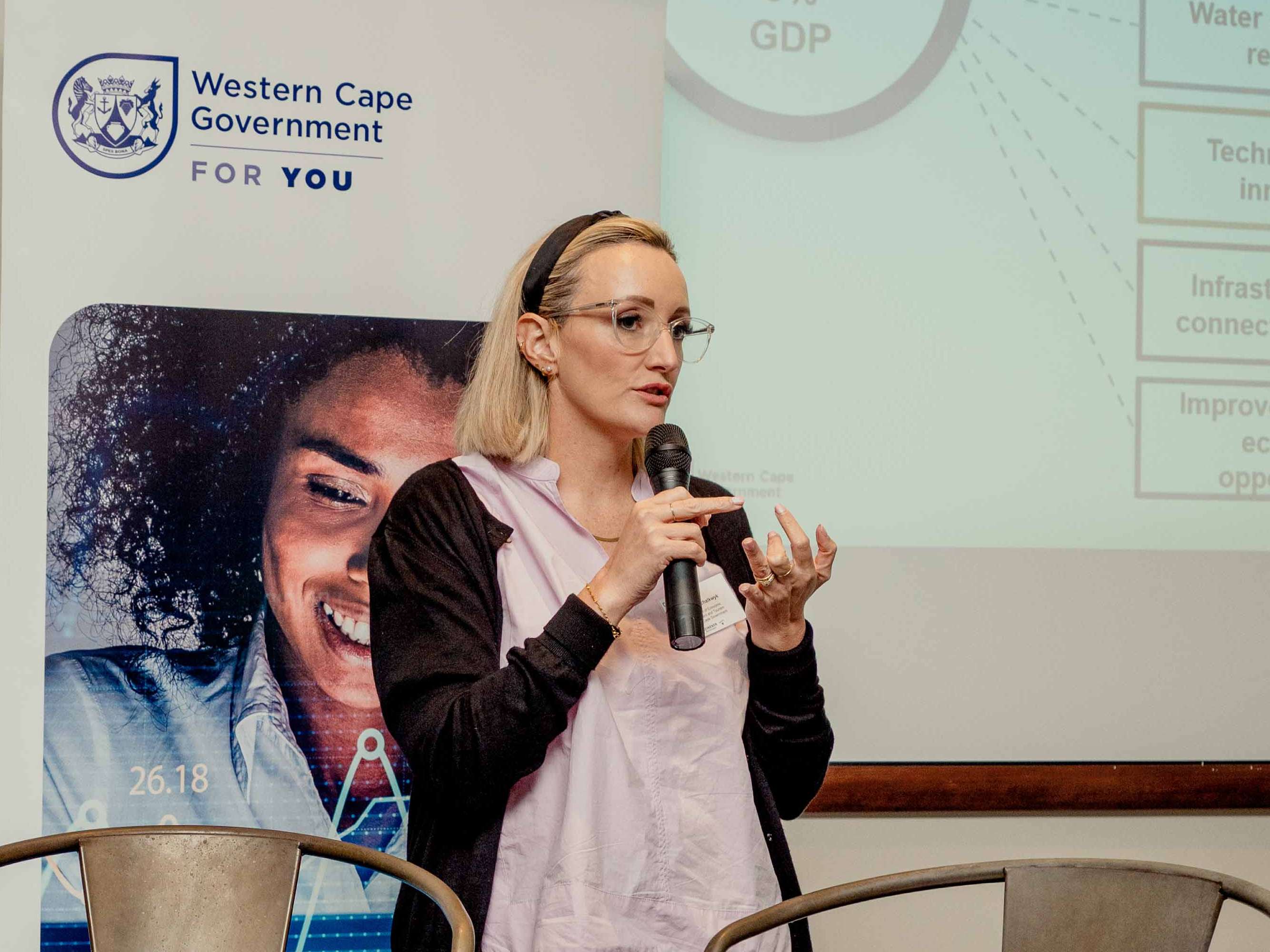Join us to shape a better future, contact Secretariats:
Narieman Solomon Tariro Chivige

Global Competitiveness Index 4.0
Pillar 3: ICT adoption 8.3%
3.01 Mobile-cellular telephone subscriptions
3.02 Mobile-broadband subscriptions
3.03 Fixed-broadband internet subscriptions
3.04 Fibre internet subscriptions
3.05 Internet users
Pillar 6: Skills 8.3%
A. Current workforce50%
I. Education of current workforce 50%
6.01 Mean years of schooling
II. Skills of current workforce 50%
6.02 Extent of staff training
6.03 Quality of vocational training
6.04 Skillset of graduates
6.05 Digital skills among active population
6.06 Ease of finding skilled employees
B. Future workforce 50%
I. Education of future workforce 50%
6.07 School life expectancy
II. Skills of future workforce 50%
6.08 Critical thinking in teaching
6.09 Pupil-to-teacher ratio in primary education
The Chamber contributes to the strengthening of the business environment by:
- Supporting regional sector and value chain development programmes - for firms to express their concerns about issues affecting business in their sub-sector and to steer systematic improvement to realise faster growth of the sub-sector.
- Supporting Business retention and expansion programmes - to steer systematic improvement of their local business environment.
- Facilitating dialogue with the public sector - towards more effective public investment, smarter service delivery, procurement efficacy and to stop doing what the private sector can do with greater efficacy.
- Creating large-scale awareness of issues concerning business, which needs to be rectified by the public sector or other responsible parties. Various platforms are utilised including events with key stakeholders, traditional media and social media.
Industrial development depends upon the availability of a wide range of skills as much as it requires the workforce able to use them. There are multiple skill indicator indexes used to monitor the well-being of business environments worldwide, and these need to be applied to the Western Cape in order for us to gauge our competitiveness.
A key consideration is the education level of the current workforce, often determined by measuring the average number of school years. Equally important is the skill level, measured with reference to a range of indicators. These include the extent of staff training; quality of vocational training; skill sets of graduates; digital skills amongst the active population; and ease of finding skilled employees.
Global competitiveness also considers the future workforce, with reference to the state of primary education and teaching standards.
Government can play an enabling role by ensuring the skills development budget is allocated where required to support growth. An example is the rapidly-expanding boatbuilding industry in the Western Cape where some of the biggest yards report difficulties in finding enough skilled artisans to match their growing order books. The Chamber will play a role in alerting relevant government stakeholders of these critical skills deficits.
Current landscape
Economic growth and industrial development are intricately tied to the availability of a diverse range of skills within the workforce. However, the current state of skills development in the country presents challenges that must be addressed to ensure the country’s competitiveness. A nation’s workforce education and skill levels are critical to both economic and industrial growth. Unfortunately, several economic sectors, including energy, manufacturing, real estate, construction, and BPO, are facing significant skills deficits, further exacerbated by the relocation of skilled personnel overseas. The government, therefore, has a crucial role in enabling skills development by strategically promoting market-led skills development initiatives and allocating budgets to support industry growth. In response, the Chamber is committed to collaborating with both the public and private stakeholders to address these critical skill gaps.
The Skills Development Business Environment Portfolio Committee: Current initiatives
The Chamber's Skills Development Business Environment Portfolio Committee (BEPC) is leading efforts to tackle skills challenges in the Western Cape. By fostering collaboration between the Provincial Government's Skills Development Department, various Sector Education and Training Authorities (SETAs), the Quality Council for Trades and Occupations (QCTO), and industry associations, the committee is creating a unified approach to skills development. This initiative brings stakeholders together to collaboratively develop solutions, aligning the efforts of government, education authorities, and industry leaders. The goal is to address skills shortages and ensure the workforce is prepared to meet the region’s evolving economic demands.








